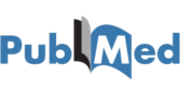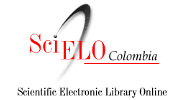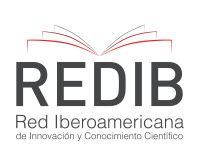Revista Colombiana de Obstetricia y Ginecología in the 21st Century
DOI:
https://doi.org/10.18597/rcog.88Abstract
Current trends in written media worldwide are driven by new events that began affecting our daily lives in unpredictable ways twenty years ago. At the beginning of the 90s, cell phones, the web and other technologies were already on stage helping people communicate throughout the world, and information was instantly available through mobile antennas, allowing such things as the live broadcast of the Gulf War in 1990. Also at that time, personal computers were already available to help individuals process and store large volumes of data, and mankind as a whole began to develop awareness about global warming as new evidence became available. Notwithstanding, very few people could envision the exponential growth of information and communication technologies, or the effects of global warming experienced during this century.
As we enter the second decade of the 21st century, we have access to computer software and devices that allow people to communicate in real time, regardless of where they are in the world. Some of these devices are embedded in tablets and mobile phones, with their ability to download all types of information, either e-mail, written news, free encyclopedias in several languages built through worldwide collaboration, and multiple other gaming, music and video applications. These devices and applications have enabled the development of social networks, such as Wikipedia with outside editing, and Facebook, a platform for multiple applications very popular among the youth, and more recently, Twitter, very much used by politicians who send their tweets to this network of an estimated 200 million current users. These networks have gained such power that they have been used to drive massive movements, as was the case with the Arab Spring in late 2010. Moreover, digitized images and documents are the building blocks for databases, maps and other images found in Google, for example; they make it possible to visit many places and run through history in great detail, or improve predictions about future scenarios.
Author Biography
Hernando Gaitán D.
Editor
Revista Colombiana de Obstetricia y Ginecología
References
Wikipedia: Cambio climático. [Visitado 2013 Dic. 14]. Disponible en: http://es.wikipedia.org/wiki/ Cambio_clim%C3%A1tico
Oxman AD, Guyatt GH. The science of reviewing research. Ann N Y Acad Sci. 1993;703:125-33.
Field M, Lohr K. Institute of Medicine Committee to Advise the Public Health Service on Clinical Practice Guidelines. Clinical Practice Guidelines: directions for a new program. Washington DC: National Academy Press; 1990.
Lavis JN, Permanand G, Oxman AD, Lewin S, Fretheim A. Support Tools for evidence-informed health Policymaking (STP) 13: Preparing and using policy briefs to support evidence-informed policymaking. Health Res Policy Syst. 2009;16(7):S13.
Weng YH, Kuo KN, Yang CY, Lo HL, Shih YH, Chen C, et al. Increasing utilization of Internet-based resources following efforts to promote evidence-based medicine: a national study in Taiwan. BMC Med Inform Decis Mak. 2013;13:4.
How to Cite
Downloads
Downloads
Published
Issue
Section
| Article metrics | |
|---|---|
| Abstract views | |
| Galley vies | |
| PDF Views | |
| HTML views | |
| Other views | |
















